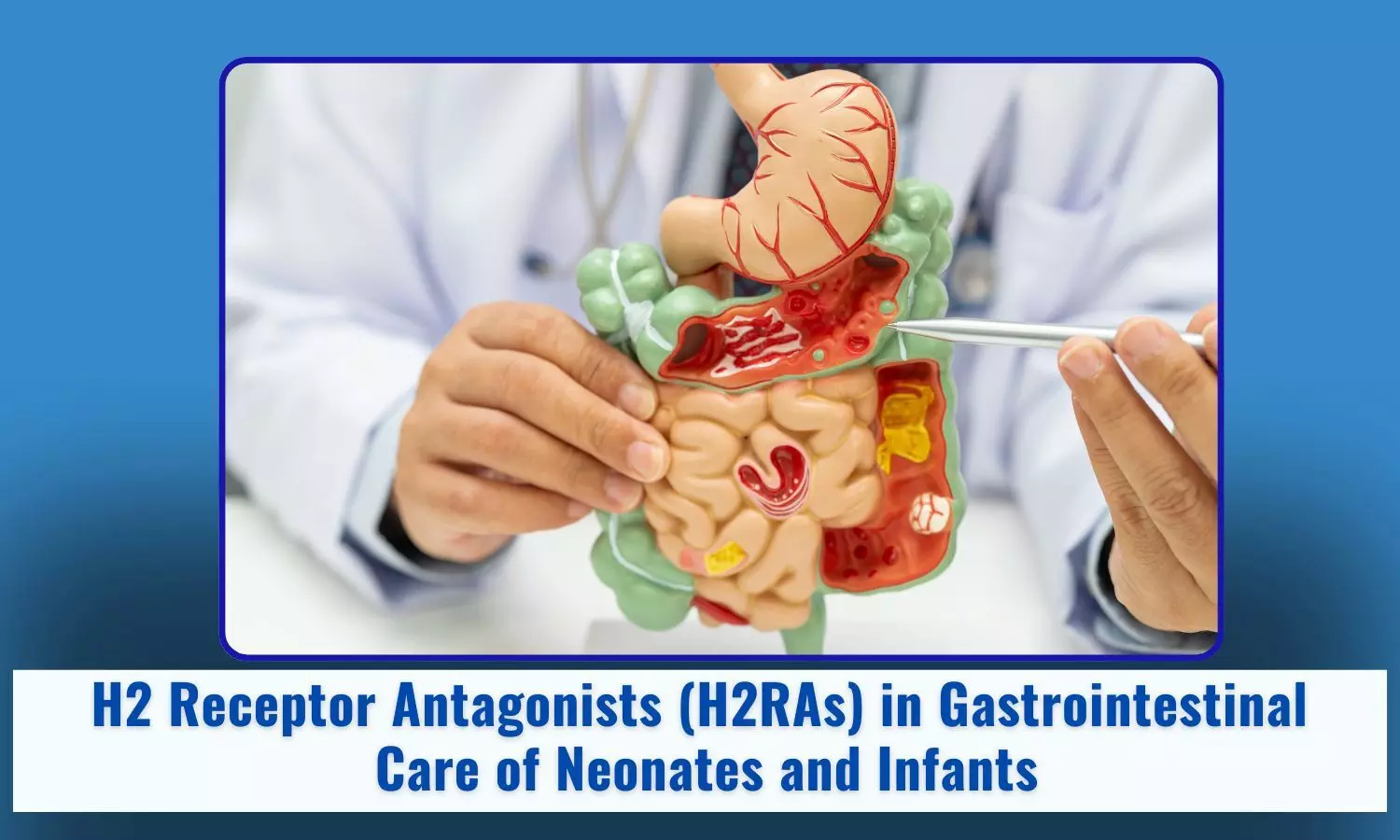H2 receptor antagonists (H2RAs) in Gastrointestinal Care of Neonates and Infants: Indian Paediatricians' Perspectives
- byDoctor News Daily Team
- 08 November, 2025
- 0 Comments
- 0 Mins

Gastrointestinal (GI) conditions are common in neonates and infants. These may include Gastroesophageal Reflux (GER), Gastroesophageal Reflux Disease (GERD). Other important conditions are stress-related gastrointestinal injury and upper GI bleeding, particularly in infants admitted to intensive care. Such disorders require prompt intervention and emphasize the importance of gastric acid-reducing medications (ARMs), particularly H2 receptor antagonists (H2RAs), which have become an essential component of pediatric gastroenterology care. GER is a self-limiting condition in infants with symptoms like regurgitation, vomiting, cough, choking, hiccups, and irritability, usually resolving by 6–12 months. GERD is the more severe form, difficult to distinguish from GER due to overlapping symptoms. In confirmed GERD cases unresponsive to non-pharmacological measures, ARMs such as H2RAs offer effective and safe acid suppression in selected infants. Another important aspect of infant intensive care is the prevention of stress ulcers through stress ulcer prophylaxis (SUP), as stress-related GI injury and upper GI bleeding may develop within the first 2 days of ICU admission. For the prevention, proton pump inhibitors (PPIs) and H2RAs such as ranitidine are often used. While PPIs are used for stress ulcer prevention, they have been associated with higher risks of pneumonia in infants. Evidence indicates that H2RAs like ranitidine are effective and safer, reducing stress-induced gastric lesions and upper GI bleeding in critically ill neonates, including those on mechanical ventilation, without increasing pneumonia risk. Overall, routine ARM use in ventilated neonates is discouraged, but H2RAs like ranitidine are considered safer alternatives to PPIs for gastrointestinal management in this population. ARMs like H2RAs are essential in managing gastrointestinal conditions in neonates and infants, but there is a need for clear practice-based prescribing guidelines to ensure their proper and safe use. To address this, a panel of 24 pediatric specialists from India developed comprehensive recommendations on ARM use, published in the May 2025 issue ofCureus. These include the gastrointestinal applications of H2RAs in neonates and infants, which are as follows: Clinical scenarios to Prefer H2RAs over PPI Speaking to , Dr. Lalit Bharadia, Consultant Pediatric Gastroenterology, Neoclinic Children Hospital, Jaipur, an expert from the panel of review paper, said – “In cases of acute illness that require prompt action where illness is not very severe in nature, I would prefer using a H2 receptor blocker over a proton pump inhibitor.” Effectiveness of H2RAs like Ranitidine in Preventing Stress in Infants Dr. Sreenath Manikanti, Department of Neonatology, Kauvery Hospital, Bangalore, India,another expert from the review paper said – “I would say H2RAs are quite effective, as proton pump inhibitors are not recommended for neonates due to the risk of necrotizing enterocolitis and fungal infection. H₂ receptor antagonists are effective in preventing stress ulcers, especially in intensive care settings where babies on ventilators and multiple life supports undergo painful procedures. In such cases, H₂ receptor blockers are a safer alternative to proton pump inhibitors.” Advantages H2RAs offer compared to PPIs in neonatal and infant care Dr. Gautam Mittal, Department of Pediatrics, Gautam Child and Gastro Care, Patiala, India, one more pannel expert from the review paper said – “The most important point is that PPIs are not indicated for children below one year of age and are usually avoided due to the risk of acute kidney injury. In NICU cases requiring acid reduction, we generally prescribe H₂RAs as they have a faster onset of action, showing effect within about 30 minutes, whereas PPIs act much later. PPIs also carry a higher risk of acute kidney injury and are linked to gastrointestinal and respiratory infections, especiallyClostridium difficile, with long-term use. Moreover, PPIs impair calcium and vitamin B12 absorption, while H₂RAs do not have these problems. PPIs are also associated with an increased risk of neonatal necrotizing enterocolitis (NEC). These are the major disadvantages of PPIs and advantages of using H₂RAs.” The study reiterated that individualized assessment, prioritization of non-pharmacologic interventions, and cautious ARM administration help to ensure clear benefits while minimizing risks. H2RAs like ranitidine may be a safer alternative to PPIs in this population.
Disclaimer: This website is designed for healthcare professionals and serves solely for informational purposes.
The content provided should not be interpreted as medical advice, diagnosis, treatment recommendations, prescriptions, or endorsements of specific medical practices. It is not a replacement for professional medical consultation or the expertise of a licensed healthcare provider.
Given the ever-evolving nature of medical science, we strive to keep our information accurate and up to date. However, we do not guarantee the completeness or accuracy of the content.
If you come across any inconsistencies, please reach out to us at
admin@doctornewsdaily.com.
We do not support or endorse medical opinions, treatments, or recommendations that contradict the advice of qualified healthcare professionals.
By using this website, you agree to our
Terms of Use,
Privacy Policy, and
Advertisement Policy.
For further details, please review our
Full Disclaimer.
Recent News
Kerala waives Rs 10 lakh discontinuation penalty f...
- 09 November, 2025
Jharkhand health dept announces SOP for ICU and CC...
- 09 November, 2025
Doctors oppose Punjab govt's decision to set up me...
- 09 November, 2025
Biocon gets 2 USFDA observations for Visakhapatnam...
- 09 November, 2025
Daily Newsletter
Get all the top stories from Blogs to keep track.


0 Comments
Post a comment
No comments yet. Be the first to comment!